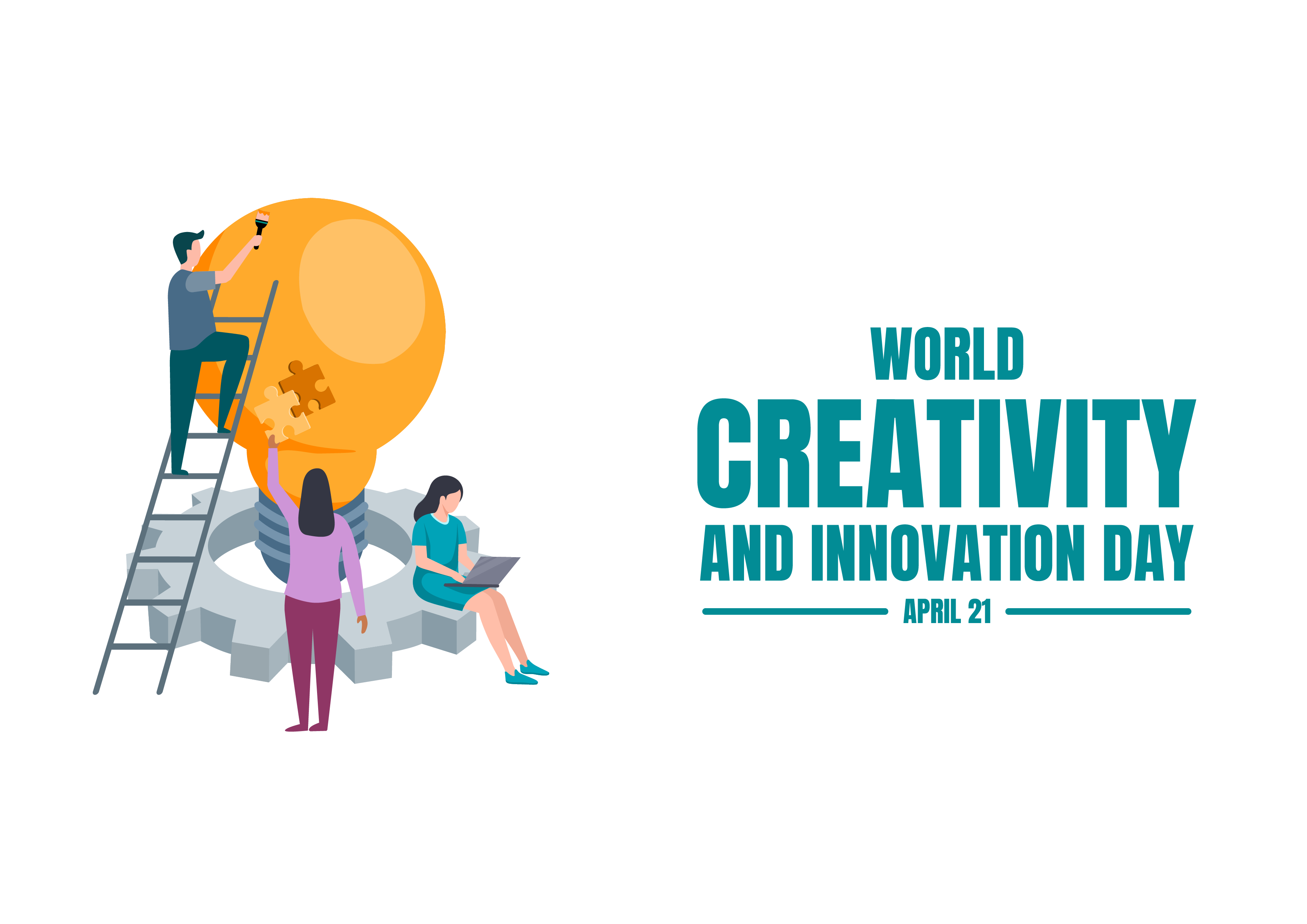©AdobeStock

DÍA MUNDIAL DE LA CREATIVIDAD Y LA INNOVACIÓN
Ayer, 21 de abril, se celebró el Día Mundial de la Creatividad y la Innovación. Esta efeméride pretende concienciar sobre el fundamental papel que juega la creatividad en el desarrollo humano. Esta fecha se celebra desde el año 2002, cuando fue proclamada por la ONU.
La innovación, la creatividad y el espíritu emprendedor generalizado son esenciales para la consecución de los Objetivos de Desarrollo Sostenible (ODS). Pueden impulsar el desarrollo económico y la generación de empleo, al mismo tiempo que amplían las oportunidades para todos, incluyendo a las mujeres y los jóvenes. Asimismo, pueden brindar respuestas a desafíos urgentes, como la erradicación de la pobreza y la lucha contra el hambre. La capacidad creativa e innovadora de los seres humanos, tanto a nivel individual como colectivo, se ha convertido en la auténtica riqueza de las naciones en el siglo XXI.
La expresión cultural y la capacidad de crear representan el 3,1 % del Producto Interno Bruto (PIB) global y el 6,2 % del total de empleo. El valor de las exportaciones de bienes y servicios culturales se ha duplicado desde 2005, alcanzando los 389.100 millones de dólares en 2019. A pesar de ser uno de los sectores económicos más recientes y de mayor crecimiento, enfrenta desafíos persistentes y emergentes que lo hacen altamente vulnerable y a menudo descuidado en términos de inversiones tanto públicas como privadas. El informe de la UNESCO “Reflexionando sobre las políticas para la originalidad: considerando la cultura como un recurso global” proporciona nuevos datos esclarecedores que resaltan las tendencias en desarrollo a nivel global, además de ofrecer recomendaciones para políticas que promuevan ecosistemas creativos capaces de contribuir a un futuro sostenible para 2030 y más allá.
__
Yesterday, April 21, World Creativity and Innovation Day was celebrated. This event aims to raise awareness of the fundamental role that creativity plays in human development. This date has been celebrated since 2002, when it was proclaimed by the UN.
Innovation, creativity and widespread entrepreneurship are essential for the achievement of the Sustainable Development Goals (SDGs). They can drive economic development and job creation, while expanding opportunities for all, including women and youth. They can also provide answers to urgent challenges, such as poverty eradication and the fight against hunger. The creative and innovative capacity of human beings, both individually and collectively, has become the true wealth of nations in the 21st century.
Cultural expression and the capacity to create represent 3.1% of global Gross Domestic Product (GDP) and 6.2% of total employment. The value of exports of cultural goods and services has doubled since 2005, reaching $389.1 billion in 2019. Despite being one of the newest and fastest growing economic sectors, it faces persistent and emerging challenges that make it highly vulnerable and often neglected in terms of both public and private investments. UNESCO’s report “Reflecting on Policies for Originality: Considering Culture as a Global Resource” provides illuminating new data highlighting developing trends globally, as well as offering recommendations for policies that promote creative ecosystems capable of contributing to a sustainable future by 2030 and beyond.
__
